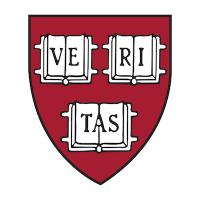What do they do?
Design or implement programs and strategies related to water resource issues such as supply, quality, and regulatory compliance issues.
Also known as:
Water Resources Planner
-
2.9%
Change
Ranks #48 in job growth rate80Job Openings
Ranks #27 in net job growth
Looking for colleges that offer a specific major? Use the College Match Tool to find your best-matched schools and discover your estimated Net Price!
- Bachelor's degree (40%)
- Master's degree (32%)
- Doctorate or Professional Degree (19%)
- Some college, no degree (4%)
- Associate's degree (3%)
- High school diploma equivalent (2%)
- Less than high school diploma (<1%)
Most Popular Majors that prepare Water Resource Specialists
-
#1
-
Degrees Granted
77,596
-
Female Students
52,815
-
Male Students
24,781
-
Median Starting Salary
$40,800
-
-
#2
-
Degrees Granted
15,900
-
Female Students
6,461
-
Male Students
9,439
-
Median Starting Salary
$54,000
-
-
#3
-
Degrees Granted
11,717
-
Female Students
6,411
-
Male Students
5,306
-
Median Starting Salary
$45,700
-
-
#4
-
Degrees Granted
8,929
-
Female Students
5,073
-
Male Students
3,856
-
Median Starting Salary
$44,700
-
-
#5
-
Degrees Granted
6,593
-
Female Students
1,655
-
Male Students
4,938
-
Median Starting Salary
$55,100
-
People in this career often have these skills:
- Reading Comprehension - Understanding written sentences and paragraphs in work-related documents.
- Active Listening - Giving full attention to what other people are saying, taking time to understand the points being made, asking questions as appropriate, and not interrupting at inappropriate times.
- Writing - Communicating effectively in writing as appropriate for the needs of the audience.
- Speaking - Talking to others to convey information effectively.
- Critical Thinking - Using logic and reasoning to identify the strengths and weaknesses of alternative solutions, conclusions, or approaches to problems.
- Judgment and Decision Making - Considering the relative costs and benefits of potential actions to choose the most appropriate one.
- Time Management - Managing one's own time and the time of others.
- Complex Problem Solving - Identifying complex problems and reviewing related information to develop and evaluate options and implement solutions.
- Systems Analysis - Determining how a system should work and how changes in conditions, operations, and the environment will affect outcomes.
- Systems Evaluation - Identifying measures or indicators of system performance and the actions needed to improve or correct performance, relative to the goals of the system.
People in this career often know a lot about:
- Engineering and Technology - Knowledge of the practical application of engineering science and technology. This includes applying principles, techniques, procedures, and equipment to the design and production of various goods and services.
- Mathematics - Knowledge of arithmetic, algebra, geometry, calculus, statistics, and their applications.
- Design - Knowledge of design techniques, tools, and principles involved in production of precision technical plans, blueprints, drawings, and models.
- Physics - Knowledge and prediction of physical principles, laws, their interrelationships, and applications to understanding fluid, material, and atmospheric dynamics, and mechanical, electrical, atomic and sub-atomic structures and processes.
- Computers and Electronics - Knowledge of circuit boards, processors, chips, electronic equipment, and computer hardware and software, including applications and programming.
- English Language - Knowledge of the structure and content of the English language including the meaning and spelling of words, and rules of composition and grammar.
- Geography - Knowledge of principles and methods for describing the features of land, sea, and air masses, including their physical characteristics, locations, interrelationships, and distribution of plant, animal, and human life.
People in this career often have talent in:
- Oral Comprehension - The ability to listen to and understand information and ideas presented through spoken words and sentences.
- Written Comprehension - The ability to read and understand information and ideas presented in writing.
- Oral Expression - The ability to communicate information and ideas in speaking so others will understand.
- Written Expression - The ability to communicate information and ideas in writing so others will understand.
- Problem Sensitivity - The ability to tell when something is wrong or is likely to go wrong. It does not involve solving the problem, only recognizing that there is a problem.
- Deductive Reasoning - The ability to apply general rules to specific problems to produce answers that make sense.
- Inductive Reasoning - The ability to combine pieces of information to form general rules or conclusions (includes finding a relationship among seemingly unrelated events).
- Information Ordering - The ability to arrange things or actions in a certain order or pattern according to a specific rule or set of rules (e.g., patterns of numbers, letters, words, pictures, mathematical operations).
- Near Vision - The ability to see details at close range (within a few feet of the observer).
- Speech Clarity - The ability to speak clearly so others can understand you.
- Category Flexibility - The ability to generate or use different sets of rules for combining or grouping things in different ways.
People in this career often do these activities:
- Test green technologies or processes.
- Identify opportunities for green initiatives.
- Evaluate green operations or programs for compliance with standards or regulations.
- Develop environmental remediation or protection plans.
- Evaluate environmental or sustainability projects.
- Prepare proposals or grant applications to obtain project funding.
- Present sustainable products or services information to the public.
- Analyze data to determine project feasibility.
- Advise others on green energy or related technologies.
- Compile operational data.
- Maintain operational records.
- Identify environmental concerns.
- Monitor organizational compliance with regulations.
- Evaluate quality of materials or products.
- Develop sustainable organizational policies or practices.
- Implement organizational process or policy changes.
- Develop procedures to evaluate organizational activities.
- Supervise workers performing environmentally sustainable activities.
- Negotiate contracts for environmental remediation, green energy, or renewable resources.
- Monitor resources.
This page includes data from:

 Occupation statistics: USDOL U.S. Bureau of Labor Statistics Occupational Employment Statistics
Occupation statistics: USDOL U.S. Bureau of Labor Statistics Occupational Employment Statistics
 Videos: CareerOneStop, USDOL/ETA and the Minnesota Department of Employment & Economic Development
Videos: CareerOneStop, USDOL/ETA and the Minnesota Department of Employment & Economic Development


















